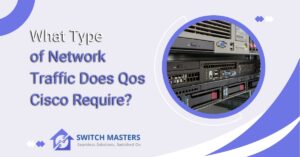Explore the key advantages and disadvantages of hub switch and router. Understand their distinct functionalities, benefits for network management, and potential drawbacks to make informed decisions for your network infrastructure.
Introduction
Computer networking relies heavily on understanding the roles and impacts of various devices in order to design and manage effective networks. Communication and data transfer within networks are facilitated by hubs, switches, and routers, which are fundamental components. As each of these devices plays a unique role, their selection can have a significant impact on a network’s performance, scalability, and security.
We examine the advantages and disadvantages of hubs, switches, and routers in this discussion, as well as their suitability for various networking scenarios and trade-offs associated with their implementation. A knowledge of network infrastructure is essential for network administrators, IT professionals, and any individual interested in its intricacies.
Table of Contents
Overview of Hub, Switch, And Router
A hub, switch, and router play pivotal roles within the vast Internet universe in which information travels at the speed of light. These three devices provide the linchpin that determines how data flows within a network.
1. The Hub:
A hub is essentially a device that connects multiple computers to a network over its physical layer. Think of it as a central meeting point where data is shared among connected devices. In spite of the simplicity of setting up and the cost-effectiveness of hubs, they have limitations. Hubs operate at the physical layer of the OSI model, transmitting data indiscriminately to all connected devices. Due to the fact that all data is broadcast to every device on the network, they are at risk of collisions, which could result in congestion and slower performance.
2. The Switch:
An intelligent and efficient alternative to the hub is the switch. Unlike hubs, switches operate at the data link layer (Layer 2) of the OSI model. A switch learns the MAC addresses of connected devices and forwards data only to the devices to which it is intended. As a result, collisions are eliminated and network performance is enhanced by creating dedicated communication paths. Switches are scalable and suitable for large networks, making them an ideal choice for modern systems.
3. The Router:
Taking the next step, we will examine the router. Routing adds a new dimension to network management, as it operates at the network layer (Layer 3) of the OSI model. It is routers that connect various networks and facilitate communication between those networks, unlike hubs and switches. It is important for them to direct data between devices within the same network (internetwork) or between networks (internetwork). A router provides network segmentation, enhances security, and protects against external threats with features such as firewalls.
Advantages and Disadvantages of Hub Switch and Router
Hub
Advantages of Hub
The hub is a networking device that connects numerous computers or other network devices together. While hubs are considered less sophisticated than switches and routers, they do have some advantages that make them appropriate for certain networking scenarios.
- Simplicity and Ease of Use: Hubs are plug-and-play devices that do not require any configuration, making them ideal for small, simple network setups. Their simplicity is particularly beneficial for individuals who have little or no experience with computer networking.
- Cost-Effective: A hub is typically less expensive than a switch or router, making it an attractive solution for budget-conscious individuals or small businesses looking to establish a basic network.
- Ideal for Small Networks: As long as traffic congestion is minimal and the network load isn’t too high, hubs can function effectively within small network environments. They are primarily used for small home networks and small office networks where traffic isn’t as heavy as in larger networks.
- Broadcast Traffic: The hub broadcasts packets from all devices connected to the network. This can be a disadvantage in larger networks, but it can be useful in small networks for network monitoring and packet analysis.
- No IP Address Configuration Needed: Unlike routers, hubs do not require IP address management because they operate at the physical layer (Layer 1) of the OSI model. This makes them an ideal solution for environments in which IP address management is a concern.
- Compatibility with Older Equipment: Older network interfaces are compatible with hubs, making them suitable for use in environments where legacy systems continue to function.
- Easy to Expand: Plugging in additional devices into a hub is a simple procedure. Simply connect them to the hub’s ports and you are ready to go.
Disadvantages of Hubs in Networking
There are several disadvantages to the use of hubs, particularly when compared with more advanced devices like switches and routers. Understanding these disadvantages is crucial to the proper planning and management of a network.
- Collision and Network Congestion: A hub operates in a single collision domain, which means that two devices transmit at the same time will result in a collision. This can lead to significant network congestion and inefficiency in networks with many devices.
- Limited Bandwidth: It is important to note that hubs share bandwidth among all connected devices. Due to this shared bandwidth model, the more devices are connected to the hub, the less bandwidth is available for each device, which may cause potential network delays.
- Lack of Traffic Segmentation: As opposed to switches, hubs do not segment network traffic. Instead, they transmit all incoming packets to every port, regardless of the destination. This lack of segmentation can result in security vulnerabilities as data packets can be intercepted by any device connected to the network.
- No Intelligent Data Handling: It is important to note that hubs do not analyze or process the data passing through them. They are unable to distinguish between different types of data or prioritize packets, resulting in a loss of efficiency and the possibility of data collisions.
- Inefficient for Large Networks: The simplistic nature of hubs makes them incompatible with large networks or networks that are in the process of growing. They are not able to handle the volume of traffic and the complexity of larger network environments efficiently.
- Security Risks: It should be noted that hubs pose a greater security risk, as they broadcast all data to all connected devices. This can lead to sensitive data being easily captured by anyone connected to the network, making hubs less secure for networks where data privacy is a concern.
- No Support for Advanced Networking Features: There is a lack of support for advanced networking features such as VLANs (Virtual Local Area Networks), Quality of Service (QoS), and network management protocols on hubs, which limits their functionality in more complex network configurations.
- Energy Inefficiency: As hubs are always active, broadcasting data to all ports regardless of whether the devices they are connected to are active, they are generally less energy-efficient than switches.
Switches

Advantages of Switches
As an integral component of modern networking, switches offer a number of advantages over simpler devices, such as hubs. The following are some of the key advantages of switches:
- Improved Network Performance and Speed: Network performance is significantly enhanced by switches, as opposed to hubs, which broadcast data across all connected devices. By targeting data transmissions, unnecessary network traffic is reduced and collisions are minimized, leading to a faster and more efficient network.
- Traffic Management with Dedicated Paths: As each port on the switch operates as its own collision domain, devices connected to different ports do not compete for bandwidth, since each port has its own dedicated path for data transmission. In networks with high traffic, this configuration provides a smoother and more reliable data transfer, which is particularly beneficial.
- Enhanced Security Features: Unlike hubs, switches offer advanced security features. Several security protocols and methods are supported by switches, including VLANs (Virtual Local Area Networks), which separate network traffic and reduce internal threats. Furthermore, port security can be used to restrict access to the network, further improving its security.
Disadvantages of Switches
While switches have many advantages, they also have a number of disadvantages:
- Higher Cost Compared to Hubs: As a general rule, switches are more expensive than hubs. This may be a significant consideration for small businesses or individuals on a tight budget who will not require the advanced features provided by switches.
- Complexity in Configuration and Management: As opposed to hubs, switches are more complex to configure and manage than hubs. Switches require technical expertise to configure features such as VLANs, QoS (Quality of Service), and port security, making them potentially challenging for users without prior networking experience.
- Scalability Issues in Larger Networks: While switches are highly effective in small to medium-sized networks, they can have difficulty scaling in very large or rapidly growing networks due to their limited scalability. Managing a large number of switches and ensuring that their configurations are consistent can be challenging and time-consuming. It may be necessary in such situations to employ more advanced networking solutions or higher-end switches with better scalability features.
Routers
Advantages of Routers
As one of the most important components of modern networking, routers provide a range of advanced capabilities necessary to manage networks efficiently. The following are some of the advantages of routers:
- Ability to Connect Different Network Architectures: A router’s major advantage is its ability to connect to multiple networks that may utilize different architectures and protocols. As a result, routers are indispensable for creating an interconnected network environment, facilitating communication between different network segments, such as the connection of a local area network (LAN) to the internet, through which different network segments are connected.
- Advanced Traffic Management and Routing Capabilities: Using routers, network traffic is intelligently managed and routed. Data packets are analyzed by these devices and determine the most efficient path to reach their destination. Managing network congestion and ensuring the efficient transmission of data across networks require this capability.
- Enhanced Security with Firewalls and VPN Support: Firewalls and Virtual Private Network (VPN) support are often included with routers. These features enhance network security by protecting against external threats as well as providing secure remote access. A firewall monitors incoming and outgoing traffic and blocks potential threats, while a VPN provides secure access to public networks.
Disadvantages of Routers
It is important to note that routers have some limitations in addition to their advantages:
- Complexity in Setup and Maintenance: For those without technical expertise, setting up routers can be a daunting task. Setting up network settings, managing routing protocols, and configuring security features require a certain level of expertise and can take a considerable amount of time.
- Higher Cost than Hubs and Switches: The cost of routers is higher than that of simpler networking devices such as hubs and switches, which can be a barrier to entry for small businesses or individuals who do not require the advanced features offered by routers.
- Potential Performance Bottlenecks in High-Traffic Networks: The routing capacity of routers can limit the overall network performance in networks with high traffic volumes. Since all traffic flows through the routers, their processing capacity can become a bottleneck for the network. This is particularly true for lower-end routers, which may not have the processing power to handle a large amount of traffic efficiently.
FAQ’s
How do routers differ from hubs and switches in functionality?
In contrast to hubs and switches, which are designed to work exclusively within one network, routers connect multiple networks, manage IP-based traffic, and route data to its destination across multiple networks.
What are the advantages of using routers in a network?
By connecting different network architectures, routers are able to provide advanced traffic management and routing capabilities, as well as enhanced security features such as firewalls and VPN support.
What are the disadvantages of using routers?
Routers can be complicated to set up and maintain, are typically more expensive than hubs and switches, and can be a source of performance bottlenecks in networks with high traffic levels.
In what scenario is it better to use a switch over a hub?
In medium to large networks, where traffic management, network performance, and security are important criteria, a switch is preferred over a hub.
When is it ideal to use a router in a network setup?
Routers are ideal for network configurations that require the connection of multiple networks, such as when connecting a local area network to the Internet, or when advanced traffic management and security features are required.
Conclusion
As a result, hubs, switches, and routers serve distinct roles within the network infrastructure, each with its own advantages and disadvantages. In addition to being simple and cost-effective, hubs fail in performance and security. Despite offering greater network efficiency and security, switches are more expensive and complex, making them ideal for medium to large networks.
Despite being the most complex and expensive of the three, routers are essential for complex network setups because they provide advanced connectivity and traffic management across multiple networks. It is important to balance simplicity, performance, and cost considerations when choosing among these devices, based on the specific requirements of the network.















